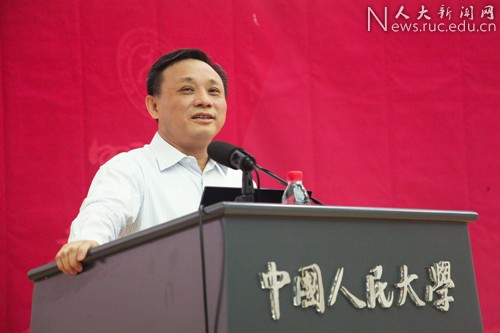 Research Update
Research Update
30
SeptemberThe Third Quarter of 2017 China's Macroeconomic Forum under the title of China's Economy Entering a Critical Period of Development under the Integration of Innovation and Industry, was held by NADS, School of Economics and China Trust Credit Management LTD in Renmin University of China on September 23rd.
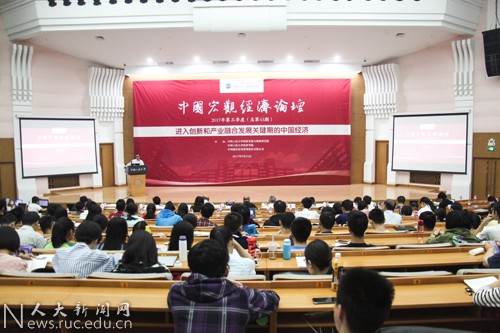
Liu Yuanchun, Vice President at Renmin University, Executive Director at National Acadamy of Development and Strategy, RUC, attended the forum. In attendance were many academics and specialists such as Zhao Changwen, Director General at Department of Industrial Economy, Development Research Center (DRC) of the State Council, Liu Zhibiao, Professor at School of Economics at Nanjing University, Bi Jiyao, Deputy Director of the Academy of Macroeconomic Research with the NDRC, Hu Naiwu, First Grade professor at RUC, Liu Fengliang, Executive dean of the Graduate School, Yang Ruilong and Mao zhenhua, Deans at Institute of Economic Research, Wang Jinbin, Vice Dean of School of Economics of RUC and Zhang Jie, Senior Fellow at National Acadamy of Development and Strategy and Professor at School of Economics.
The first session was hosted by professor Yang Ruilong.
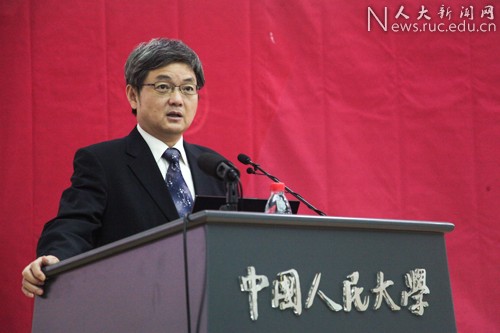
According to Professor Liu Yuanchun, 14 disciplines in Renmin University has been rated as state-level key disciplines recently, including Theoretical Economics and Applied Economics. This, on the one hand, appreciated and supported the discipline superiority and potentiality of development of RUC. On the other hand, it also encouraged NADS to make a breakthroughs and focus on urgent problems faced by our country. Under the circumstance, NADS could play its vanguard role as one of the China Top Think Tanks. Professor Liu hoped that the report of this forum could provide some new insights and theoretical basis for the development of China’s economy under the Integration of Innovation and Industry.
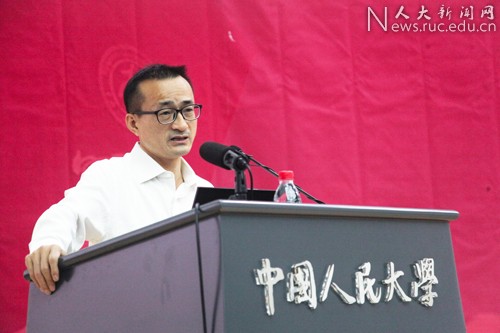
Professor Zhang Jie published the forum report China's Economy Entering a Critical Period of Development under the Integration of Innovation and Industry. The report points out that China’s economy has gradually stepped into a ‘New Normal’ period ever since the financial crisis in 2008, transferring from extensive mode of growth to innovation driven mode of growth. In this period, new norms of economy and motivation has started to support the economic growth momentum, though they has not yet become the determinant. In other words, new economic motivation is experiencing a critical climbing stage in replacing the old one. Economies in many places are now standing near the point where traditional motivation of development declining fast while new motivation of growth rising rapidly.
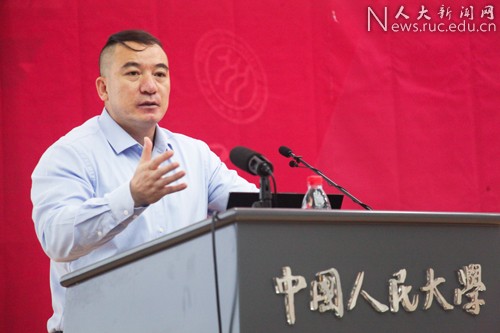
The report also points out that based on the current situation of China’s economy, the deepened integration between innovation and industry could be regarded as the key to ensure the sustainable development of China’s economy. It has been proven to be an exit of many contradictions and problems. Under the circumstance, to secure the approach from innovation to economic growth, it is necessary to secure the “innovation—>industry—>economic growth”, especially the path from innovation to industry. Despite problems caused by the innovation side or the industry side, most of the integration problems occurred in this path, and the environment to support the integration also needed to be improved. To solve those problems, the research team stressed that building a new model of coordination relation between the government and market could help speed up the development of integration between innovation and industry. There are several ways to accomplish this goal:
1. Transform the economic development models.
2. Speed up the building of legal system.
3. Carry forward the reform of the Intellectual Property Protection Law and the Patent law.
4. Revise the recent version of Bidding Law.
5. Build up the “Market Random Check” system of product quality covering full range of products.
6. Expand and strengthen the professional team of product quality inspection institution in various levels of government and their scope of the law enforcement powers.
7. Diversify the divisions of real economy based on manufacturing industry.
8. Set up a modern human resources system to match various levels of demand.
The second session of the forum was held by Professor Liu Fengliang. In this session, he discuss related issues of China’s macro economy with other specialists and experts.
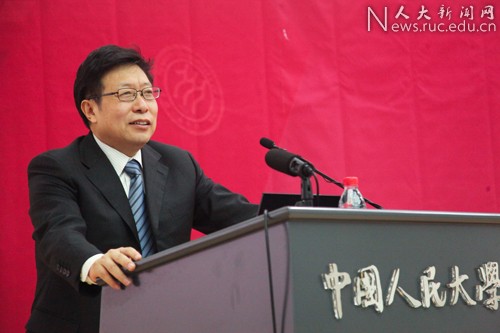
Director Zhao Changwen stressed that the speed of innovation decides the speed of economic growth, while the most important basis of innovation should be the human resources structure.
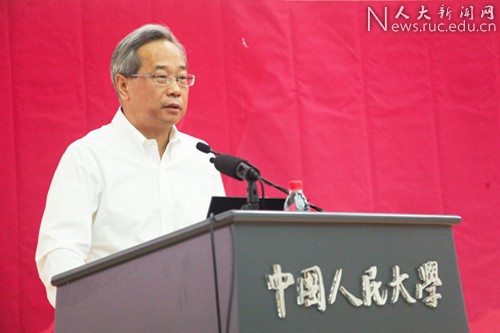
Professor Liu Zhibiao discussed the report from 10 aspects such as the ratio of strategic emerging industries in the GDP, the difference between technological innovation and industrial innovation, the human resources of industrial innovation, etc.
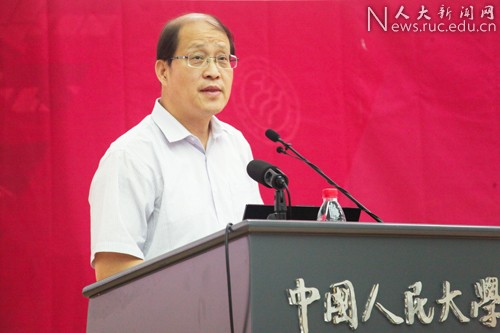
Mr. Bi Jiyao said that some factors, such as limited creative thoughts, the relation between market and government, the transformation between research and industrialization and weakness of industrial development may restrict the development of innovation.
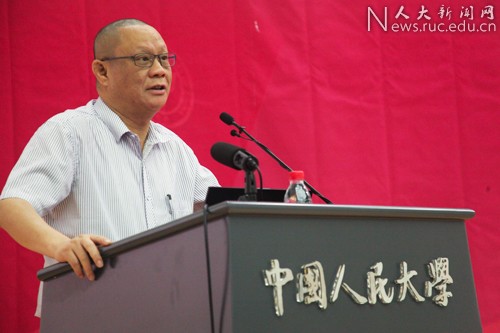
Mr. Mao Zhenhua believed that the process of innovation should happen between enterprises. During the past 30 years since the implementation of reform and open policy, China’s economy has grown at a high speed and enterprises in China gained a lot of experience. However, some problems also appeared. For instance, the input of an enterprise in the field of innovation highly is depended on its confidence, which needed to be improved from property protection, judicial norms, corporate finance and other aspects.
